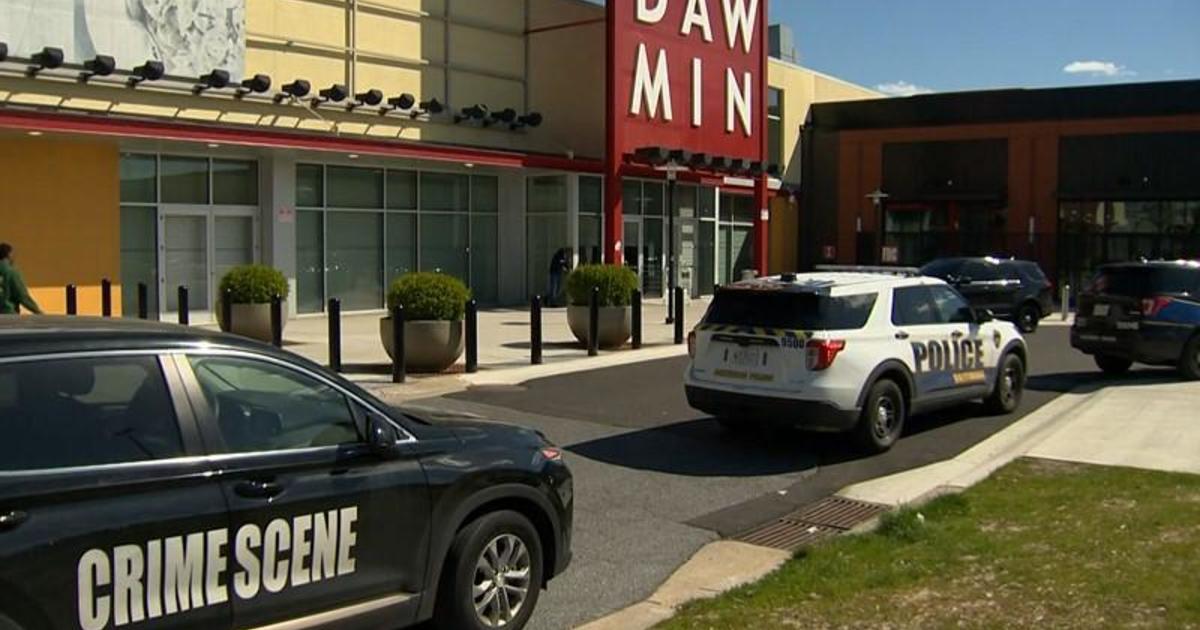Researchers Say There Is No Proof That Johns Hopkins Owned Slaves
BALTIMORE (WJZ) -- The long-standing claims that Johns Hopkins was a staunch abolitionist were shattered last December when JHU announced that it had strong evidence that its founder owned slaves. However, a group of researchers shared new evidence that suggests he did not.
Sydney Van Morgan, Director of Johns Hopkins International Studies Program, and Ed Papenfuse, Maryland State Activist, put together a 71-page paper arguing that there is no conclusive evidence that Hopkins ever owned slaves.
"We went to tax records, we have looked extensively at quaker records and we haven't been able to find any corroborating evidence that he actually owned those people who were listed on the census," said Van Morgan.
Van Morgan stated that census documents from 1840 and 1850 show that enslaved men lived on Hopkins's properties but that doesn't mean he owned slaves.
"In 1840 and 1840 the census did not make any distinction between employment and ownership and it was very common in Baltimore for people even companies sometimes to employ enslaved people," Van Morgan added.
Martha S. Jones, Johns Hopkins History Professor, led the group of researchers that concluded that Hopkins did own slaves.
Jones gave this statement to WJZ:
"I remain of the view that Mr. Hopkins held enslaved people in his household at least in 1840 and 1850 as the census slave schedules reported. I have not seen evidence to the contrary. What his legal relationship to those persons was we do not know. Perhaps he owned them. Perhaps he hired or rented them. Perhaps he bartered or borrowed their forced labor. Evidence also strongly suggests that Mr. Hopkins engaged in business transactions that involved enslaved people as some form of guarantee.
In 2007 the state of Maryland formally expressed regret for it role in slavery, the trade and its legacies. France (where I happen to be just now) recognized slavery as having been a crime against humanity in 2001. This is all to say that Mr. Hopkins was complicit with an institution that traded in human beings. He did so despite his capacity to hire free workers for wages. He did so despite the widely understood critique of slavery leveled by abolitionists including Baltimore's own Frederick Douglass.
Our spring research findings will be released over the summer and I'll be happy to share them with you. I hope it goes without saying that the research necessary to fully explain and contextualized the evidence regarding Mr. Hopkins and his family is ongoing and will occupy our research team for some time.
Lastly, the moral valence of our own time, one of reckoning with racism, demands that we attend equally to the lives and the legacies of the enslaved people held by Mr. Hopkins. We know the name of one man, James Jones. To the others the historical record has not been kind or generous. Still we are accountable to them, those for whom there was no redemption or reparations for being forced to give up their labor. Our work is committed to making that record as well. Both the past and the present demand it."
Johns Hopkins Officials said that the university is grateful for the efforts to dig deeper into this research.
The university gave this statement to WJZ:
When we announced the discovery of the census records last December linking the university's founder to slaveholding, we made clear that this is the beginning of a journey of research, discovery, and analysis of a complex history — and our researchers and historians remain deeply engaged in that work. We have fully acknowledged the important documented findings of our lead historian in the matter, Dr. Martha Jones, while also embracing the potential for new discoveries, countervailing interpretations, and rigorous debate.
As we said at the time, the university decided to share this new information at an early stage in order to make the ongoing process of further research and understanding inclusive of the Hopkins community and our neighbors in Baltimore. We hoped that the public would contribute to this research, and we are grateful for the efforts being undertaken to dig deeper. The university is planning a symposium on the new discoveries about Mr. Hopkins this fall, and we look forward to hearing a full range of ideas and perspectives.
You can read the full paper that Papenfuse and Van Morgan published online here: https://osf.io/zra5f/.



